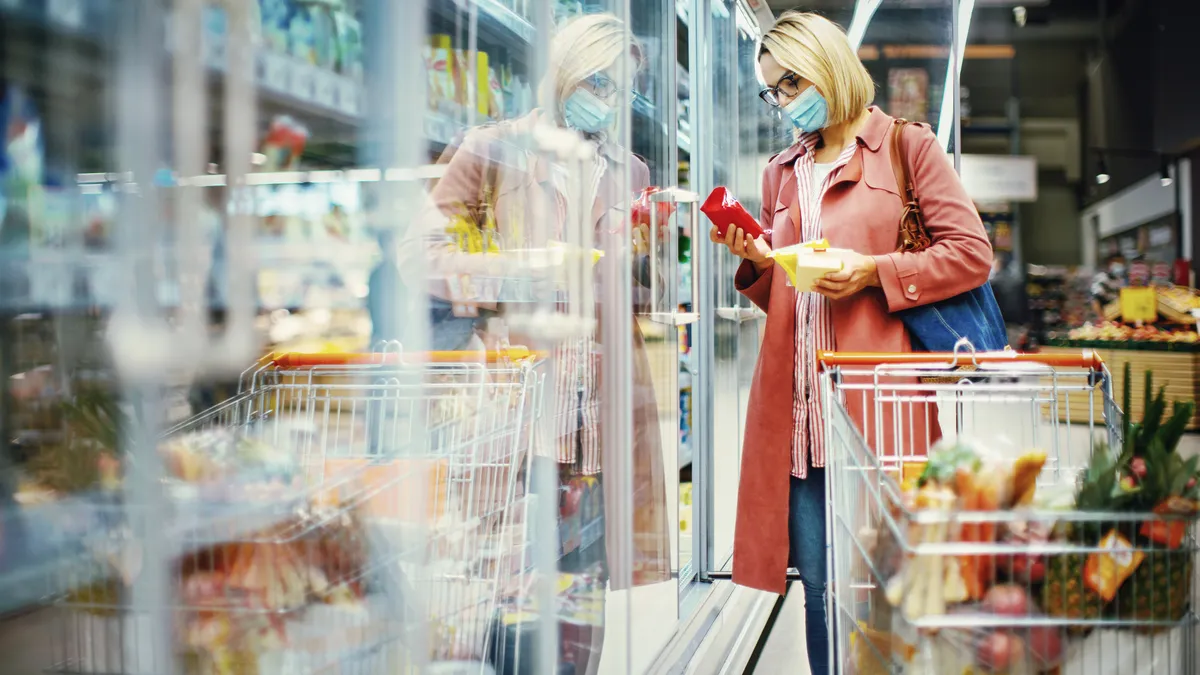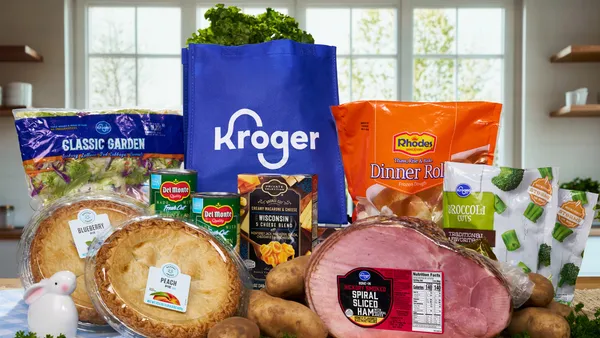Dive Brief:
- Food-at-home prices skyrocketed 8.6% during the past year — their fastest pace since April 1981 — according to Consumer Price Index (CPI) data for February released Thursday by the U.S. Bureau of Labor Statistics (BLS).
- The food-at-home price index leaped 1.4% in February compared to the month before, up from 1% in January
- The increase in the cost of food was a key factor in propelling the annual CPI for all items to 7.9% in February, a statistic that portends more economic turmoil during the months to come.
Dive Insight:
Grocery prices were already surging when Russia attacked Ukraine late last month, sending further shockwaves through the pandemic-rattled global economy and adding uncertainty to already-taut supply chains.
Food-at-home inflation hit a fresh four-decade high in February, topping the 7.4% annual rate seen in January and outpacing the cost of eating out, which rose at a 6.8% clip in February, according to the BLS.
Protein prices are growing at a particularly fast rate, with the CPI for beef up 16.2% over the past year, topping the index for meats, poultry, fish and eggs, which tacked on 13%. Dairy and related products, meanwhile, rose 5.2%.
Prices for fruits and vegetables increased 2.3% in February compared with their level the month before, the fastest pace among the six major grocery store food groups the BLS tracks and the largest month index for the category since March 2010. Fresh fruit prices went up 3.7% on a monthly basis, while fresh vegetable prices rose 1.3%.
The increase in food prices in February conspired with costs for fuel and shelter to lead the CPI's march last month, the BLS said. Gasoline prices, which have hit a record high as the Ukraine crisis shakes the energy market, played a particularly outsize role in driving inflation in February, accounting for almost a third of the overall rise in the CPI, the government said.
Consumers appear to be especially sensitive to the rising prices they are encountering at the grocery store. Data collected by research firm Dunnhumby between Jan. 25 and Feb. 8 found that shoppers think inflation is even higher than it actually is. The company's Consumer Pulse Survey also revealed that the rising cost of food has become a bigger source of concern for people than the pandemic.
Worry by shoppers about food prices could fuel interest by retailers in adding private labels products to their assortments, according to research released Wednesday by market intelligence company DataWeave. Poultry, meat and frozen foods sold under retailer-owned brands are particularly likely to gain momentum as 2022 unfolds, DataWeave said.
Kroger, the nation's largest supermarket chain, said last week it intends to heavily promote its Kroger brand products, which accounted for more than $15 billion in sales last year, to help battle price sensitivity among shoppers.













